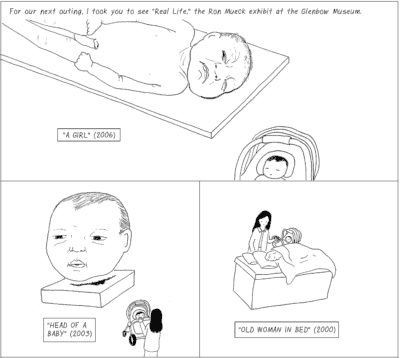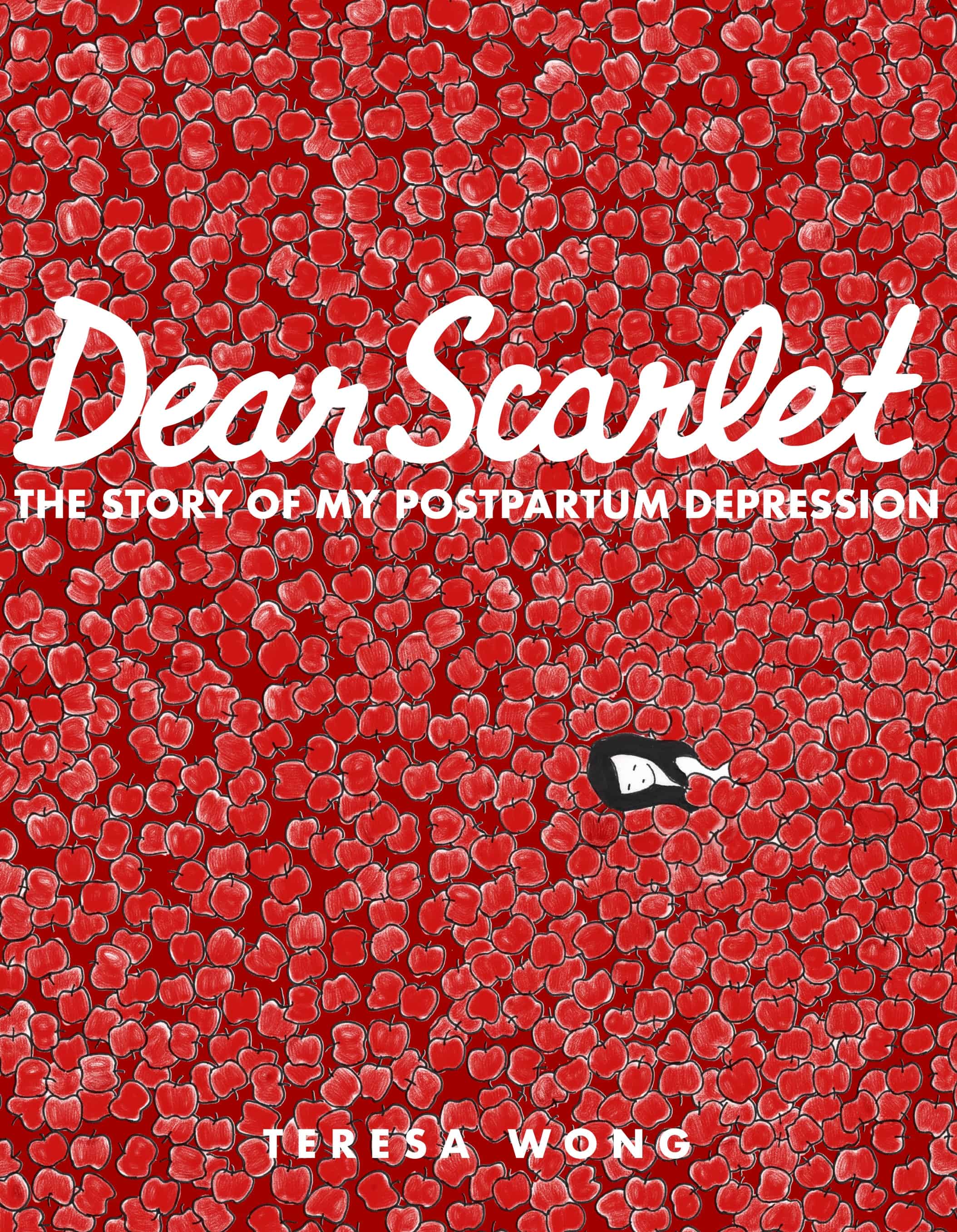Teresa Wong went through hell after her daughter, Scarlet, was born. Postpartum depression set up house in her brain and stayed for a long time. She recounts her experience of these painful early days in a gripping and intimate graphic novel called Dear Scarlet: The Story of My Postpartum Depression, initially penned as a letter to her daughter. Equally heartbreaking and funny, Dear Scarlet perfectly captures the quiet desperation of those suffering from PPD and the profound feelings of inadequacy and loss.
This Saturday, she’ll discuss her book and experiences in a panel at TCAF: The Motherhood Challenge (Forest Hill Ballroom, Marriott Bloor Yorkville, 90 Bloor St. E. at 2:45 p.m.). Challenging the norms surrounding childbirth and motherhood, this panel brings together Sylvia Nickerson (All We Have Left, Is This), Lucy Knisley (Kid Gloves: Nine Months of Careful Chaos), Megan Kearney (Beauty and the Beast) and Teresa Wong (Dear Scarlet: The Story of My Postpartum Depression) to talk about parenting and the meaning of family from different lenses, and discuss how their own experiences inspire and inform their representation of mothers in their work.
We chatted with Wong this week.

SDTC: Walk us through your experience with PPD. What happened?
At my daughter’s ten-day checkup, I told the doctor that I thought I might be depressed. She shrugged it off as the “baby blues” and told me that it would pass. Her suggestion was to go for more walks outside. I believed her, even though I knew something deeper was going on.
Finally, six weeks in, I had a sort of breakdown one night, and my husband decided to take me to another doctor who would take my concerns seriously. She got me on antidepressants right away and referred me to a psychiatrist who specialized in postpartum depression. It took about eight months of treatment before I began to feel like myself again.
Through it all, my husband was very supportive, but he just didn’t know what to do to help me. My mother was also very supportive and spent a lot of time caring for both me and my daughter.
How did the idea for your graphic novel, Dear Scarlet, take shape?
Dear Scarlet began as a way to work through some unresolved feelings. When I was pregnant with my third baby, I started having flashbacks to the delivery room and to Scarlet’s newborn days. The memories were so vivid they made me cry. I mean, maybe it was just pregnancy hormones, but I realized I wasn’t “done” with it—even after all the counselling and treatment I’d been through—so I thought maybe writing about it would help. It came out as a letter to Scarlet. The published book is pretty close to what I first started with.
What was the hardest panel in the graphic novel to do?
The whole book was hard for me to draw! I am a writer, not an artist, and I felt for sure that I’d need to collaborate with an illustrator to make the book. But when I showed the first draft to some friends and colleagues, they said that the simple drawings matched the vulnerability of the story. They told me it would be a better story if I drew the thing myself. I’m still not happy with many of the drawings in the book (especially since I’ve gotten better over the past few years), but there are certain panels I really am proud of. The museum panels on page 97 that feature the work of the sculptor Ron Mueck were a pretty big stretch for me. I wanted to do justice to his hyperrealistic work, and I was scared I would fail. I am, however, pleased with how the panels turned out.

What does your life look like now?
Life is pretty busy these days because I’m promoting my book while working at my day job as a digital copywriter, and of course, I also have to take care of three little kids (who are now nine, eight and five). I feel like I need a couple of clones to accomplish what I want, but somehow we’re muddling our way through. I think I’ll probably always struggle with depression and anxiety, but I’m feeling pretty good right now. I find that doing cognitive behavioural therapy has helped a lot with my mental health.
Why do you think there is so much stigma attached to PPD?
Many women hide their postpartum depression because they don’t want to seem like bad mothers. That leads to a lot of loneliness and guilt, which adds to the depression. Often, when a mother reveals her mental health struggles, friends and family minimize her feelings. That’s why it’s important to make the conversation a safe space. There would be a lot less stigma if people simply listened better and offered to help.
What would you say to yourself if you could go back in time?
“You’re doing a good job, even if you don’t feel like it. You have people in your life who love you and want to support you. Please reach out for help. Talk about how you are feeling. There are effective treatments for postpartum depression, even if you don’t want to take medication. Also, it does get better. Babies kind of suck, but they grow a bit every day, and one day they won’t need you quite so much.”



 Follow Us On Instagram
Follow Us On Instagram
